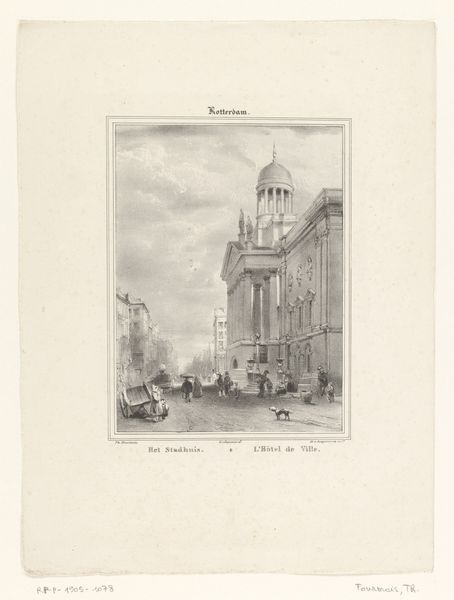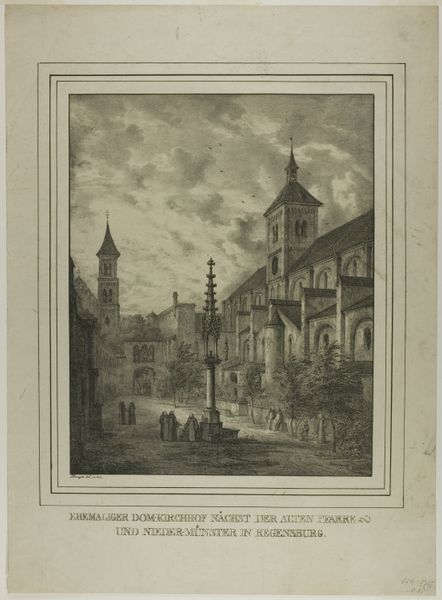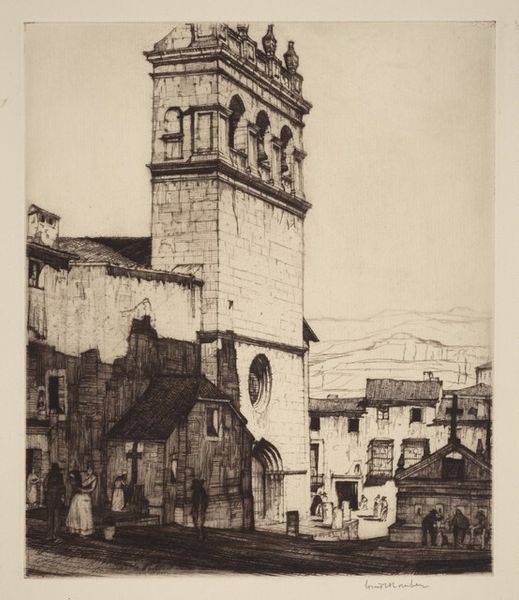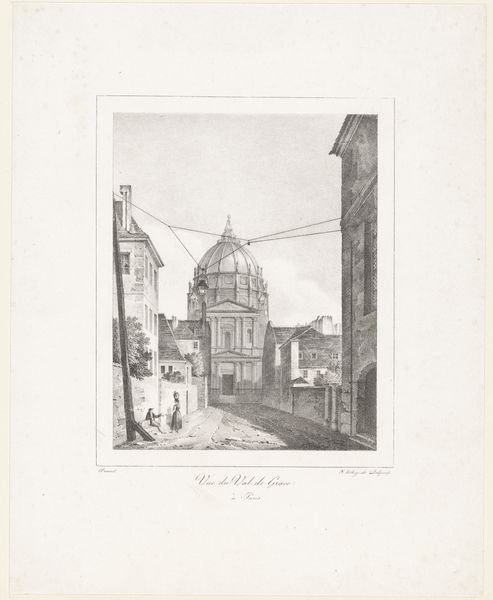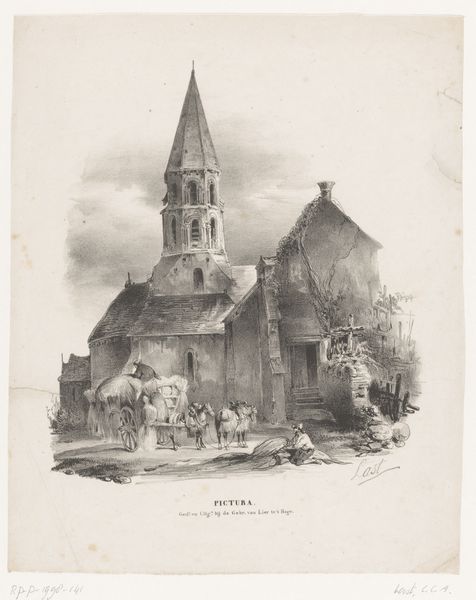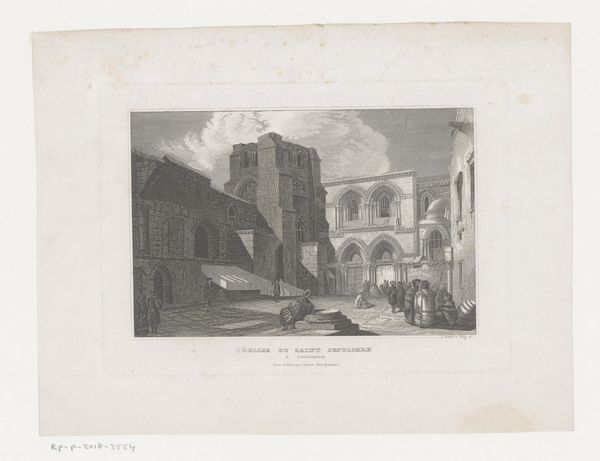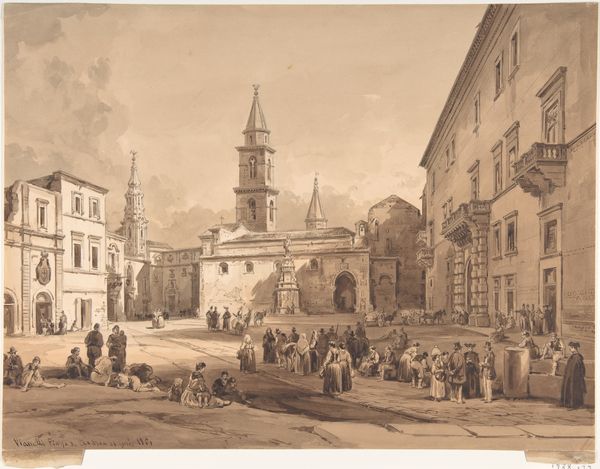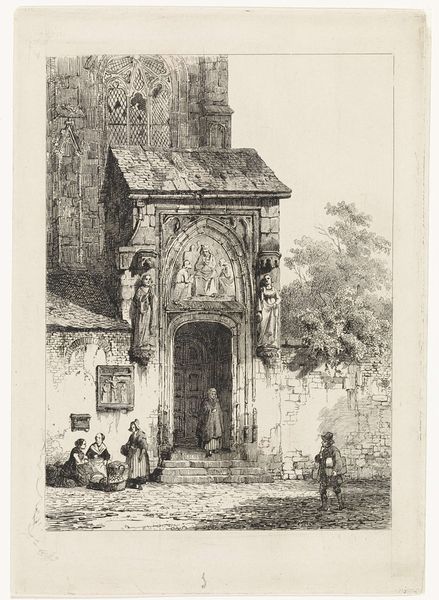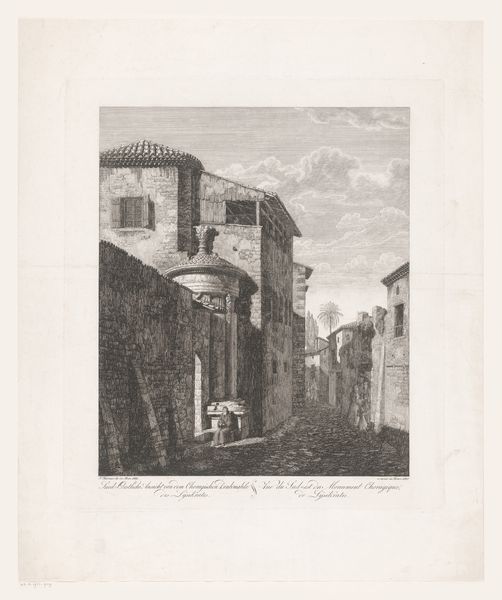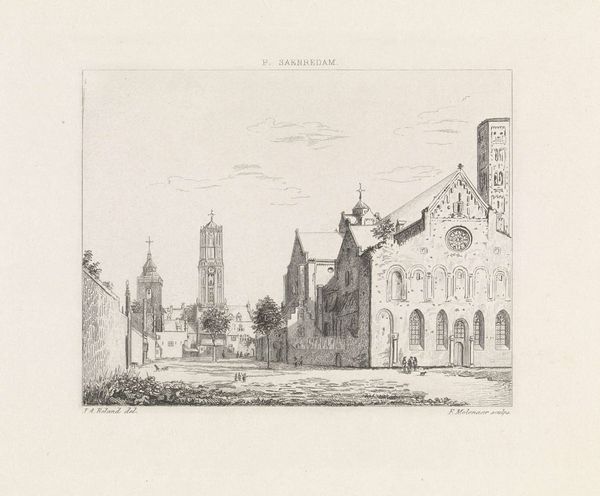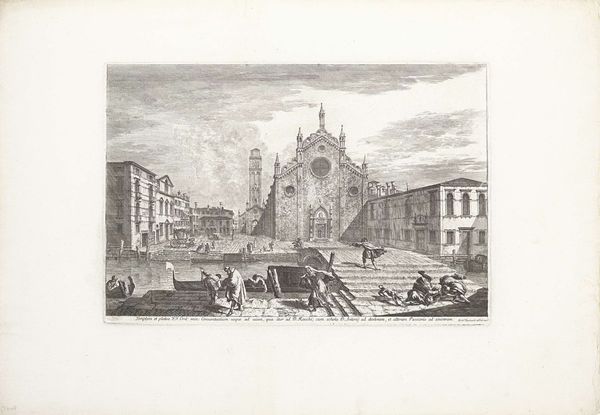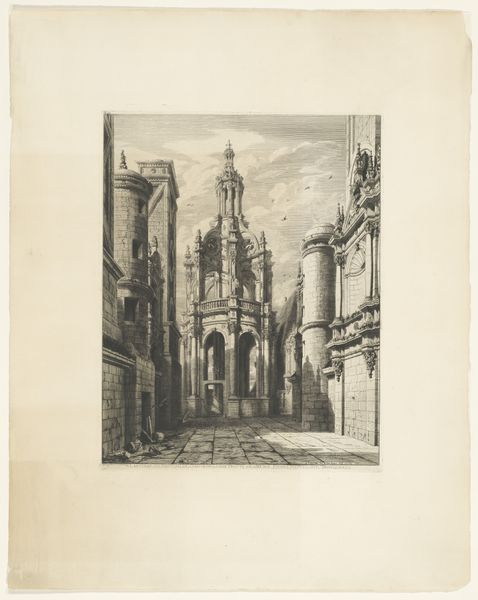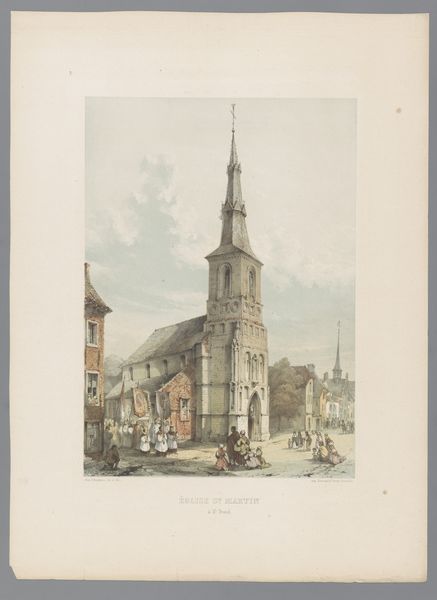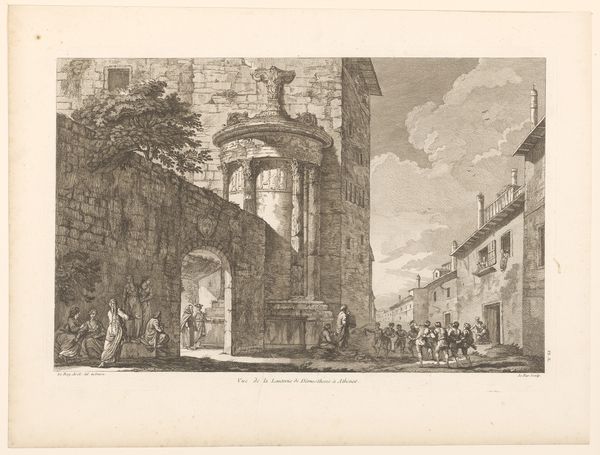
Gezicht op de Cappella della Sacra Sindone te Turijn 1829 - 1839
0:00
0:00
#
photo of handprinted image
#
aged paper
#
pale palette
#
photo restoration
#
ink paper printed
#
light coloured
#
old engraving style
#
white palette
#
natural colour palette
#
soft colour palette
Dimensions: height 477 mm, width 312 mm
Copyright: Rijks Museum: Open Domain
Editor: This is "View of the Cappella della Sacra Sindone in Turin" by Louis Jules Frederic Villeneuve, created sometime between 1829 and 1839. The aged paper and soft, almost faded tones give it such an ethereal, almost dreamlike quality. What do you see when you look at this image? Curator: Immediately, the formal composition commands attention. The rigid lines of the buildings, their severe geometry softened only by the atmospheric perspective, indicate a deep concern for structural integrity and clarity of form. Observe how the vertical thrust of the bell tower competes with the dome in the background. Editor: Yes, and the people in the foreground seem almost incidental compared to the architecture. Curator: Precisely. The human element is relegated to the lower register, serving perhaps as a scale reference rather than subjects of interest in themselves. Note also the stark contrasts in light and shadow; Villeneuve uses chiaroscuro not for dramatic effect, but to articulate the planes and volumes of his architectural subjects. Editor: So you see it as primarily an exercise in form and structure rather than, say, a commentary on society or religion? Curator: Undeniably. The architectural forms serve as vehicles for Villeneuve to explore principles of balance, proportion, and spatial relationships. The muted palette and precise linework further reinforce this focus on the essential visual components of the scene. Editor: That's a very interesting way to look at it. I was so caught up in the overall feeling, I hadn’t really deconstructed the image into its basic formal elements. Curator: Understanding those elements allows a richer understanding of the artistic project. It underscores the ways in which the artwork speaks through its own inherent properties. Editor: Thank you, that's given me a lot to think about in terms of how I approach art analysis moving forward.
Comments
No comments
Be the first to comment and join the conversation on the ultimate creative platform.
